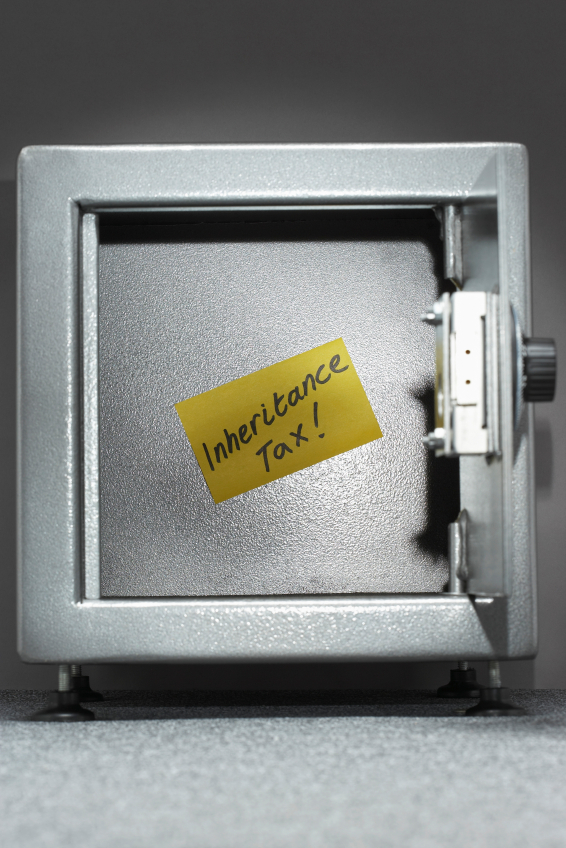Receiving Inheritance Money from Abroad
Receiving overseas inheritance money from overseas can be a tricky process.
Receiving an “inheritance” usually means benefitting from a deceased estate. But if the inheritance is coming from overseas it becomes a bit more complicated.
Even more so if the inheritance is an entitlement to a share of a trust that was set up during the life of the deceased. This is where potentially adverse NZ tax issues arise.

What will this guide to receiving inheritance money from overseas cover?
- Tax when you’re receiving inheritance money from overseas
- Capital gains tax
- Inheritance Law
Tax on inheritance money from overseas
Inheritance from an overseas deceased estate
Receiving inheritance money from overseas from a deceased estate will not normally give rise to a NZ tax liability under NZ’s trust rules. Invariably the distribution will be of capital assets or from the realisation of assets of the deceased, enabling the recipient to categorise the distribution as sourced entirely from capital, and therefore non-taxable.
An estate may derive income during the period of administration. Local foreign tax is likely to have been paid on this, and the NZ recipient beneficiary may have to declare this income in NZ and claim a credit for any foreign tax paid, against their NZ tax liability.
Technically a distribution from an estate is treated as a distribution from a foreign trust under NZ’s trust taxation rules. However, if the distribution is a legacy or residuary entitlement from a deceased estate, it is not subject to NZ’s ordering rules, as they do not apply to a distribution from a non- discretionary trust created by will or codicil, or on intestacy
Inheritance from an overseas trust
Typically the overseas trust will have been established by the recipient’s parents or grandparents overseas, and following their death the trust fund is to be distributed between beneficiaries in various parts of the world. The NZ recipient is invariably a NZ tax resident and his or her four year transitional resident exemption period will have expired, and they would like the money to be distributed to them.
On the basis there are no NZ tax resident settlers (and note “settlor” has a very wide definition), the overseas trust will be classified as a foreign trust. The distribution will be treated as a distribution from a foreign trust and subject to NZ’s ordering rules.
The ordering rules are deeming rules. The distribution is deemed to be sourced from the following categories, and when each category is exhausted, the next category below until exhausted and so forth:
- Current year income
- Accumulated income
- Current year capital gains
- Accumulated capital gains
- Corpus
Distributions of current year and accumulated income are taxable at the recipient beneficiary’s marginal tax rate. Distributions of capital gains and corpus are not taxable.
More information can be found here.
Capital Gains Tax
New Zealand’s government website clearly states that in general, there is no capital gains tax. However, this may apply to specific investments and will apply to foreign debt and equity investments.
While there is no general capital gains tax on New Zealand investments, after the four years, tax can apply to realised and non-realised gained on overseas portfolios, including exchange gains.
Inheritance Law
When receiving inheritance money from overseas, there are laws to consider. The principal laws that apply to inheritance issues in New Zealand are the Wills Act 2007, the Administration Act 1969, the Family Protection Act1955, the Property (Relationships) Act 1976, the Law Reform (Testamentary Promises) Act 1949, and the Estate and Gift Duties Act 1968.
A will lists who gets property and money when someone dies. You need to be granted probate in court to be the will’s executor. An executor deals with the estate and hands out the property as set out in the will. There are some things you need to do if you’re executing someone’s will. You can ask a lawyer for help — the cost will come out of the estate. You will be in charge for:
- Notifying all beneficiaries of the will
- Valuing and looking after the estate
- Obtaining authority to administer the estate
- Ensuring all tax returns are completed
- Taking care of all outstanding debts
- Overseeing the division of the estate
Case Study
Dave moved to New Zealand when he was in his early thirties from the UK. He met someone abroad, and he now has a successful career and a beautiful family. However, when Dave’s father passed away in the UK, Dave instantly flew home for the funeral and to take care of the estate. As he was the eldest of his siblings, he felt it was his responsibility.
He researched into all the things he needed to do and decided that he would need to stay in the UK a little longer to get all the affairs in order. It was important that he got everything right, and understood everything.
Both himself and his younger sister came into the inheritance from their father’s estate, but Dave had no idea on the tax implications if he were to transfer his money overseas back to New Zealand. After researching on the New Zealand government website and he found that his inheritance from his father’s estate would not be taxed.

How to send the money back to New Zealand
When you bring the money back to New Zealand, you have a few options:

1. Bank Cheque
You can get the executor of the estate to issue you a bank cheque in the currency of that country.
The Currency Shop says:
While it really depends on your situation, we rarely suggest a bank cheque in a foreign currency. It usually takes a long time to convert back to New Zealand dollars and can be very costly.

2. Bank Transfer
You can get the executor of the estate to send the funds to your New Zealand bank account.
The Currency Shop says:
This option is the most expensive way to transfer money. However, you can expect your transfers to arrive back in New Zealand fairly quickly

3. Transfer Money Online
You can use a money transfer company and get the executor of the estate to send the funds to the company. The money transfer company then converts it into New Zealand dollars and credits your New Zealand bank account.
The Currency Shop says:
Using a money transfer company does require a bit of work to set up an account, but it can save you a lot of money. This is generally due to receiving a better exchange rate.
Consider using OFX While their online experience isn’t great, they do have excellent phone and email customer service and exceptional exchange rates for larger amounts.

4. Borderless Accounts
You can open a Borderless Account with Wise (formerly known as TransferWise) or a Foreign Currency Account and have the money transferred there. Designed mainly for people who want to send and receive money in multiple currencies around the world.
The Currency Shop says:
The Wise Borderless accounts offer good exchange rates and low fees. Be careful of the fees associated with other Foreign Currency Accounts.
You can transfer money in the account from one currency to another at the click of a button.